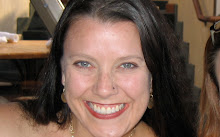“Never– never– use that word in America. You could easily be seriously hurt,” I told a Serbian friend who asked what Nigger meant.
Here in Huludao, China, I hear it every day. Here, however, it has a more rounded r at the end, if there even is one. The sound is more like “Nigga.” When students approach me after class they often stumble through their English by throwing in a few niggas. And yes, to those of us white Americans who don’t speak Mandarin Chinese, it does throw you off a bit at the beginning.
Nigga means um. Already things have happened to my speech that an American would question; it’s common among people who teach their language to others. For instance, my Irish roommate explained that when she returns home her friends have to wait for her normal pace of speech to catch up to theirs. They wait patiently as she stresses every syllable and enunciates each word as if still talking to non-native speakers. I hope that when I return to another country, or even when I speak to my friends and family back home, that my speech quickly resumes its natural pace... and that I don’t sprinkle my sentences with niggas.
“Ni hao ma? Nigga, um, sorry. How... are you? How... good... it is... to speak... to... you!” Instead of, “Heythere! Howareya?”
We Western teachers come from several countries, which often leads to bantering about lingo and accents and rather interesting dinner conversation. For instance, upon meeting AJ, a Kiwi, I hadn’t had time to adjust to his accent and knew nothing about him when my ears stumbled upon one particular word. In the US we use a short E sound when saying bed, but in words like bead or beard we run the E and A together.
Was this 20-something with scrappy, haywire facial hair tantamount to an adolescent’s talking about a beard in the sense of what a man grows or in the sense of what a closeted gay man marries? It’s true the Chinese “don’t believe” in homosexuality, but I found it difficult to believe that a Westerner, who spends most of his time around other Westerners, would go to such lengths.
“Bearding?” I asked playfully.
“Bedding,” he said, slightly abashed bc of his accent. “Does it really sound like bearding?”
“Oh,” I said, slightly pausing as I glanced subtly at the woman to his left, who was introduced as his girlfriend. “Yeah, because of the way you upturn the E. Your E sounds like America’s EA.”
The Irish roommate (who, when she speaks, reminds me of Sheena Easton’s appearances on Miami Vice) has reintroduced my Texan roommate and me to the word douchebag. My ears perked up and my head cocked to the side like a dog hearing a foreign sound the moment she said it.
“Douchebag... douchebag...” I repeated to myself aloud, as if somehow repeating it would help the word take root. Instead, I just felt like I’d stepped back 25 years to watch some early John Cusack movie.
But then I think, “What must these Westerners think of me?” Here I’m bringing influences from all over the world– words and phrases from India, Italy, Germany, and France. There arises a strict, highly enunciated pronunciation from 20 years of speaking Spanish in school, big city restaurants, watching Hispanic films and traveling to Costa Rica. (This particular language is the one I inadvertently slip into when I’m stuck for a word in Chinese. It is also an easy one to employ when complaining aloud to myself about a class’ or student’s disorderly conduct.) I slide into Italian when cursing. With virtually no Chinese linguistic currency to my name I laboriously employ a Chinese accent to describe what I’m looking for at the grocery. For instance, dumplings becomes dum-lin, with one word stressed down and the other stressed up like a V. Surely, a while after I return Stateside, I’ll be back to pronouncing dumplings with the accent on the first syllable and all letters addressed. For now, however, my questions have grown an upward curve thanks to the influence of my fellow Australian and New Zealand teachers. Soon there will likely develop a verbal adoption of the ooohs and eeews of my roommate’s Irish, and hopefully my Chinese verbal lexicon will grow. I just hope I can dig into my Midwestern American accent (where the A in Chicago is pronounced like A in apple).
06 March 2009
Subscribe to:
Post Comments (Atom)

No comments:
Post a Comment